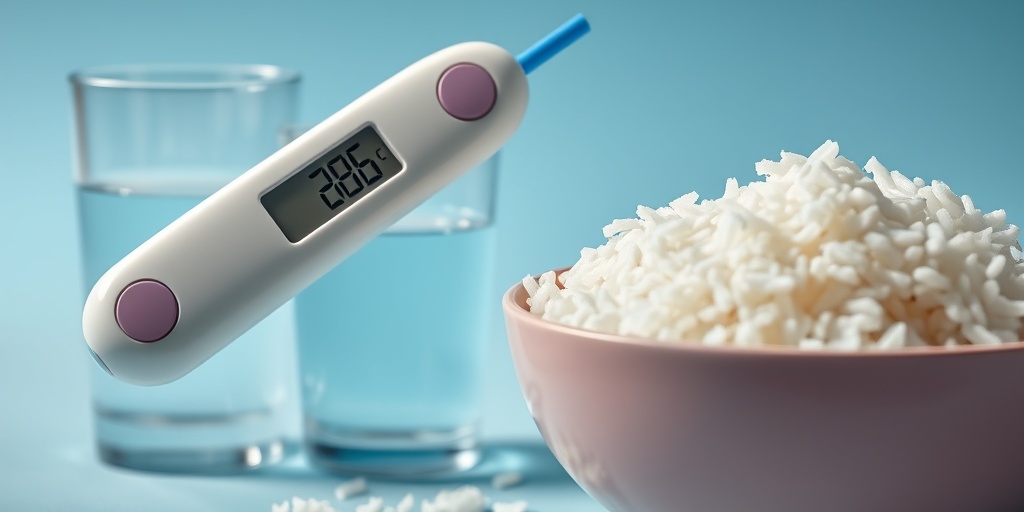What Is Gastroenteritis?
Gastroenteritis, often referred to as the “stomach flu,” is an inflammation of the stomach and intestines. This condition can be caused by various factors, including viral infections, bacterial infections, and parasites. The most common culprit is the norovirus, which is highly contagious and can spread rapidly in crowded environments such as schools and nursing homes.
When someone asks, “gastroenteritis que es?” they are essentially inquiring about the nature of this illness. Gastroenteritis typically manifests as a sudden onset of symptoms, which can vary in severity and duration. Understanding the causes and effects of gastroenteritis is crucial for effective management and prevention.
Causes of Gastroenteritis
Gastroenteritis can arise from several sources, including:
- Viral Infections: The most common cause, with norovirus and rotavirus being the primary offenders.
- Bacterial Infections: Bacteria such as Salmonella, E. coli, and Campylobacter can lead to gastroenteritis, often through contaminated food or water.
- Parasitic Infections: Parasites like Giardia lamblia can also cause gastroenteritis, particularly in areas with poor sanitation.
Transmission and Risk Factors
Gastroenteritis is highly contagious. It can spread through:
- Direct contact with an infected person.
- Consuming contaminated food or water.
- Touching surfaces contaminated with the virus or bacteria.
Certain groups, such as young children, the elderly, and individuals with weakened immune systems, are at a higher risk of developing severe symptoms. Understanding these risk factors can help in taking preventive measures.
Gastroenteritis Symptoms
Recognizing the symptoms of gastroenteritis is essential for timely treatment. The symptoms can appear suddenly and may include:
- Nausea and Vomiting: Often one of the first signs, leading to dehydration if not managed properly.
- Diarrhea: Frequent, watery stools are a hallmark of gastroenteritis.
- Abdominal Pain and Cramping: Discomfort in the stomach area is common.
- Fever: A mild fever may accompany other symptoms.
- Headache and Muscle Aches: General malaise can also occur.
Duration of Symptoms
The duration of gastroenteritis symptoms can vary. In most cases, symptoms last for 1 to 3 days, but some individuals may experience lingering effects for up to a week. It’s important to stay hydrated during this time, as dehydration can be a serious complication, especially in vulnerable populations like gastroenteritis en niños (children).
When to Seek Medical Attention
While many cases of gastroenteritis resolve on their own, there are times when medical attention is necessary. Seek help if you experience:
- Severe dehydration symptoms, such as dry mouth, dizziness, or decreased urination.
- High fever (over 101°F or 38.3°C).
- Bloody diarrhea or severe abdominal pain.
For more detailed information on treatment options, including gastroenteritis tratamiento, consider visiting resources like Yesil Health AI, which provides evidence-based health answers.
In conclusion, understanding gastroenteritis, its symptoms, and when to seek help can empower individuals to manage this common illness effectively. By being informed, you can take proactive steps to protect yourself and your loved ones from this uncomfortable condition. 🌟

Gastroenteritis Causes
Gastroenteritis, often referred to as the stomach flu, is an inflammation of the stomach and intestines that can lead to a variety of uncomfortable symptoms. Understanding the causes of gastroenteritis is crucial for prevention and management. Here are the primary culprits behind this condition:
Viral Infections
The most common cause of gastroenteritis is viral infections, particularly from the norovirus. This highly contagious virus can spread through contaminated food, water, or surfaces. Other viruses that can cause gastroenteritis include:
- Rotavirus: Especially prevalent in children, this virus can lead to severe dehydration.
- Adenovirus: This virus can affect people of all ages and is often associated with respiratory symptoms.
- Astrovirus: Common in children and the elderly, astrovirus can cause mild gastroenteritis.
Bacterial Infections
Bacterial infections are another significant cause of gastroenteritis. Common bacteria responsible for this condition include:
- Salmonella: Often found in undercooked poultry, eggs, and unpasteurized milk.
- Escherichia coli (E. coli): Certain strains can cause severe gastrointestinal distress, often linked to contaminated food or water.
- Campylobacter: Frequently associated with raw or undercooked meat, especially poultry.
Parasitic Infections
Though less common, parasitic infections can also lead to gastroenteritis. Some notable parasites include:
- Giardia lamblia: Often contracted from contaminated water sources.
- Entamoeba histolytica: This parasite can cause amoebic dysentery, leading to severe diarrhea.
Foodborne Illness
Foodborne illnesses are a significant contributor to gastroenteritis. Consuming contaminated food or beverages can introduce harmful pathogens into the digestive system. Common sources include:
- Improperly cooked or stored foods
- Unwashed fruits and vegetables
- Contaminated water supplies
Non-Infectious Causes
In some cases, gastroenteritis can be triggered by non-infectious factors, such as:
- Medications: Certain medications, especially antibiotics, can disrupt the natural balance of gut bacteria.
- Food intolerances: Lactose intolerance or gluten sensitivity can lead to gastrointestinal symptoms similar to gastroenteritis.
Gastroenteritis Risk Factors
While anyone can develop gastroenteritis, certain factors can increase the likelihood of contracting this condition. Understanding these risk factors can help in taking preventive measures:
Age
Children, especially those under five years old, are at a higher risk of developing gastroenteritis due to their developing immune systems. The elderly are also more vulnerable due to weakened immune responses.
Living Conditions
Individuals living in crowded conditions, such as dormitories or nursing homes, are at an increased risk of outbreaks. Close contact with infected individuals can facilitate the rapid spread of viruses like norovirus.
Travel
Traveling to areas with poor sanitation or contaminated water supplies can expose individuals to pathogens that cause gastroenteritis. It’s essential to practice safe eating and drinking habits while traveling.
Weakened Immune System
People with compromised immune systems, whether due to chronic illnesses, medications, or other health conditions, are more susceptible to infections, including gastroenteritis.
Food Handling Practices
Improper food handling and hygiene practices can significantly increase the risk of gastroenteritis. Key practices to consider include:
- Not washing hands before preparing or eating food
- Consuming undercooked or raw foods
- Failing to store food at the correct temperatures
By being aware of the causes and risk factors associated with gastroenteritis, individuals can take proactive steps to minimize their risk and maintain better digestive health. 🌟

Gastroenteritis Diagnosis
Gastroenteritis, often referred to as the “stomach flu,” is an inflammation of the stomach and intestines that can lead to a variety of uncomfortable symptoms. Understanding how gastroenteritis is diagnosed is crucial for effective treatment and recovery. Let’s explore the diagnostic process in detail.
Recognizing the Symptoms
The first step in diagnosing gastroenteritis is recognizing its symptoms. Common síntomas de gastroenteritis include:
- Nausea and vomiting 🤢
- Diarrhea 💩
- Abdominal cramps 🤕
- Fever 🌡️
- Headache 🤯
- Muscle aches 💪
These symptoms can vary in severity and may appear suddenly. If you experience these symptoms, especially after consuming contaminated food or water, it’s essential to seek medical attention.
Medical History and Physical Examination
When you visit a healthcare provider, they will typically start by taking a detailed medical history. This includes asking about:
- Your symptoms and their duration
- Recent travel history
- Food and drink consumption
- Exposure to others with similar symptoms
A physical examination will follow, where the doctor may check for signs of dehydration, such as dry mouth, decreased urine output, or rapid heartbeat. This is particularly important in cases of gastroenteritis en niños, as children can become dehydrated more quickly than adults.
Laboratory Tests
In most cases, gastroenteritis can be diagnosed based on symptoms and medical history alone. However, if symptoms are severe or persistent, your doctor may recommend laboratory tests. These can include:
- Stool tests: To identify the specific virus or bacteria causing the infection, such as norovirus or rotavirus.
- Blood tests: To check for dehydration and electrolyte imbalances.
These tests help determine the appropriate gastroenteritis tratamiento and ensure that any underlying conditions are addressed.
Gastroenteritis Treatment Options
Once diagnosed, the next step is to explore the various gastroenteritis tratamiento options available. Treatment primarily focuses on relieving symptoms and preventing dehydration.
Hydration is Key
One of the most critical aspects of treating gastroenteritis is maintaining hydration. Since vomiting and diarrhea can lead to significant fluid loss, it’s essential to replenish fluids. Here are some effective hydration strategies:
- Oral Rehydration Solutions (ORS): These solutions contain electrolytes and sugars to help restore balance. They are especially beneficial for children.
- Clear fluids: Water, broth, and clear juices can help keep you hydrated. Avoid caffeinated or alcoholic beverages, as they can worsen dehydration.
Dietary Adjustments
When it comes to food, knowing que comer con gastroenteritis can aid in recovery. Initially, it’s best to stick to a bland diet. Consider the following:
- BRAT diet: Bananas, Rice, Applesauce, and Toast are gentle on the stomach and can help firm up stools.
- Avoid fatty or spicy foods: These can irritate the stomach and prolong symptoms.
As symptoms improve, gradually reintroduce other foods, but listen to your body and avoid anything that triggers discomfort.
Medications
In some cases, over-the-counter medications may be recommended to alleviate symptoms:
- Antiemetics: Medications like ondansetron can help control nausea and vomiting.
- Antidiarrheals: Loperamide can reduce diarrhea, but it’s essential to consult a doctor before use, especially in cases of bacterial gastroenteritis.
Always consult with a healthcare provider before starting any medication, especially for children.
When to Seek Medical Attention
While most cases of gastroenteritis resolve on their own, it’s crucial to know when to seek medical help. If you experience:
- Severe dehydration symptoms
- High fever (over 101°F or 38.3°C)
- Bloody diarrhea
- Persistent vomiting
These signs may indicate a more serious condition that requires immediate medical intervention.

Gastroenteritis Home Remedies
Gastroenteritis, often referred to as the stomach flu, is an inflammation of the stomach and intestines that can lead to symptoms such as vomiting, diarrhea, and abdominal pain. While medical treatment may be necessary in severe cases, many people find relief through home remedies. Here are some effective strategies to manage gastroenteritis symptoms at home.
1. Stay Hydrated 💧
One of the most important aspects of managing gastroenteritis is staying hydrated. Diarrhea and vomiting can lead to dehydration, which can be serious, especially in children. Here are some tips:
- Clear fluids: Drink water, clear broths, or oral rehydration solutions (ORS) to replenish lost fluids.
- Avoid sugary drinks: Sodas and fruit juices can worsen diarrhea.
- Electrolyte solutions: Consider electrolyte drinks to restore essential minerals.
2. Follow the BRAT Diet 🍌
The BRAT diet is a popular recommendation for those recovering from gastroenteritis. It consists of:
- Bananas
- Rice
- Applesauce
- Toast
These foods are bland and easy on the stomach, helping to firm up stools and reduce irritation.
3. Ginger Tea 🍵
Ginger has natural anti-inflammatory properties that can help soothe the stomach. Drinking ginger tea can alleviate nausea and promote digestion. Simply steep fresh ginger slices in hot water for a soothing beverage.
4. Peppermint for Relief 🌿
Peppermint is another natural remedy that can help ease gastrointestinal discomfort. You can consume peppermint tea or even suck on peppermint candies to help relieve nausea and cramping.
5. Probiotics for Gut Health 🦠
Probiotics are beneficial bacteria that can help restore the natural balance of your gut flora. Foods rich in probiotics, such as yogurt or fermented foods, can aid in recovery from gastroenteritis. Look for products that contain live cultures for the best effect.
6. Rest and Relaxation 🛌
Allow your body to heal by getting plenty of rest. Stress can exacerbate symptoms, so take time to relax and recuperate. Gentle activities like reading or watching a movie can help keep your mind off discomfort.
Gastroenteritis Prevention Tips
Preventing gastroenteritis is crucial, especially during outbreaks of viral infections like norovirus. Here are some effective tips to help you avoid this unpleasant condition:
1. Practice Good Hygiene 🧼
Washing your hands frequently is one of the best ways to prevent gastroenteritis. Make sure to:
- Wash hands: Use soap and water for at least 20 seconds, especially after using the bathroom or before eating.
- Use hand sanitizer: When soap and water are not available, use an alcohol-based hand sanitizer.
2. Safe Food Handling 🍽️
Improper food handling can lead to gastroenteritis. Follow these guidelines:
- Cook food thoroughly: Ensure meats are cooked to safe temperatures to kill harmful bacteria.
- Avoid cross-contamination: Use separate cutting boards for raw meats and vegetables.
- Store food properly: Refrigerate leftovers promptly and consume them within a few days.
3. Be Cautious When Traveling ✈️
Traveling can expose you to new pathogens. To minimize risk:
- Drink bottled water: In areas where water quality is questionable, opt for bottled water.
- Avoid street food: Be cautious with food from vendors to reduce the risk of contamination.
4. Vaccination and Awareness 💉
While there is no vaccine for gastroenteritis itself, staying informed about outbreaks, especially of norovirus, can help you take precautions. Vaccines for rotavirus are available for infants and can prevent severe gastroenteritis in young children.
5. Educate Your Family 👨👩👧👦
Teach your family about the importance of hygiene and safe food practices. Awareness can significantly reduce the risk of gastroenteritis spreading within your household.
By following these home remedies and prevention tips, you can effectively manage and reduce the risk of gastroenteritis. Remember, if symptoms persist or worsen, it’s essential to seek medical attention.

Frequently Asked Questions about Gastroenteritis
What is gastroenteritis?
Gastroenteritis is an inflammation of the stomach and intestines, often caused by viral or bacterial infections. It leads to symptoms such as diarrhea, vomiting, and abdominal pain.
What are the symptoms of gastroenteritis?
The common síntomas de gastroenteritis include:
- Diarrhea
- Vomiting
- Abdominal cramps
- Fever
- Nausea
How is gastroenteritis treated?
Gastroenteritis tratamiento primarily focuses on hydration and rest. Over-the-counter medications may help alleviate symptoms, but it’s essential to consult a healthcare provider for severe cases.
What should I eat if I have gastroenteritis?
If you’re wondering que comer con gastroenteritis, it’s advisable to start with bland foods such as:
- Rice
- Bananas
- Applesauce
- Toast
These foods can help settle your stomach.
Is gastroenteritis contagious?
Yes, gastroenteritis can be contagious, especially if caused by viruses like the norovirus. It’s important to practice good hygiene, such as frequent handwashing, to prevent spreading the infection.
Can gastroenteritis affect children differently?
Gastroenteritis en niños can be more severe due to their smaller body size and higher risk of dehydration. Parents should monitor their children closely and seek medical attention if symptoms worsen.
How long does gastroenteritis last?
The duration of acute gastroenteritis can vary, but symptoms typically resolve within a few days. However, some individuals may experience lingering effects for a week or more.
When should I see a doctor?
If you experience severe symptoms such as high fever, blood in stool, or signs of dehydration, it’s crucial to seek medical attention promptly.




